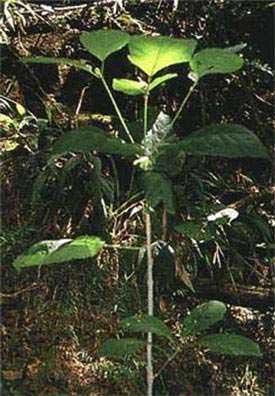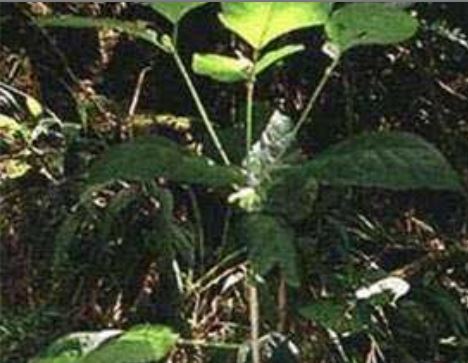[ad_1]
By Kevin Brown
Capital News Service
Kratom, a substance that users told lawmakers they take as a pain and addiction treatment, would see more stringent regulation in Maryland under legislation making its way through the General Assembly. Some government agencies advise against using the substance, calling it dangerous — while opponents of the bill are advocating for safety standards instead.
Originating in Southeast Asian countries, including Thailand and Indonesia, kratom is an herbal substance that comes from evergreen trees and has similar effects as opioids.
House Bill 283 would categorize kratom as among the most dangerous controlled substances in Maryland, a list that includes heroin, LSD, ecstasy and a hallucinogen called peyote.

Proponents of the bill argue kratom’s similarity to opioids can lead to further abuse and addiction, while opponents say the substance, when regulated properly, can help people alleviate pain, and help those with opioid addictions overcome withdrawal.
The Centers for Disease Control and Prevention released a report in April naming kratom as a possible cause of death in 91 drug overdoses across 11 states between July 2016 and December 2017. Kratom, often times spiked or used with opioids, was the only substance found in seven of those 91, according to the CDC report.
The FDA, in a 2019 advisory, has said that kratom, which “affects the same opioid brain receptors as morphine, appears to have properties that expose users to the risks of addiction, abuse, and dependence.”
But advocates for the substance told state lawmakers that it is safe, effective for treating pain and not addictive unless it has been mixed with another drug or processed improperly.
“Some enterprising vendor is spiking kratom to enhance sales, because kratom doesn’t give you a high,” Senior Fellow on Public Policy for the American Kratom Association Mac Haddow told lawmakers. “Kratom doesn’t give you a high. If it gives you a high, it’s an adulterated product, and if it’s adulterated you put your life at risk.”
Opioid-related deaths have been a nationwide issue, particularly in Maryland. The first nine months of 2019 show a decline in opioid-related deaths in the state. If this trend holds, last year would be the first in a decade to see a decrease in opioid-related deaths, according to the Maryland Opioid Operational Command Center.
Kratom is banned in six states and four cities in the United States.
The American Kratom Association advocates for the Kratom Consumer Protection Act, which requires proper labeling from kratom vendors to certify product pureness. It has been passed in four states – Utah, Georgia, Arizona and Oregon – without much opposition, and is being considered in 21 other states this year. Haddow is pushing for Maryland to join them.
“There’s no guarantee people don’t get bad kratom because of the internet,” said Haddow, who said he uses kratom for his arthritis. “(The Kratom Consumer Protection Act) puts a stop to the bad actors in this industry.”
Maryland Poison Center Medical Director Josh King told Capital News Service it would be tough to regulate kratom without it going through clinical trials. King said he doesn’t recommend clinical trials due to concerns of abuse and the reported opium-like effects from kratom.
“Something that is natural isn’t always safe,” King said. “This is a good example of that.”
Delegate Ken Kerr (D-Frederick) said he wanted to introduce the bill after hearing how a Frederick County citizen’s family was torn apart from abuse of the drug.
“It has the dependency potential, the overdose potential and it’s a dangerous subject that deserves some attention,” Kerr told Capital News Service.
[ad_2]
Source link


